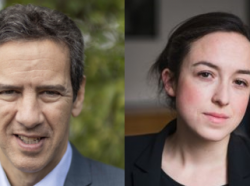The Divisional Court (Whipple LJ and Chamberlain J) has handed down its judgment in an application for urgent, interim relief against the Commissioner for the British Indian Ocean Territory (BIOT), refusing the injunction sought by the Applicants: BAA & Others v Commissioner for the British Indian Ocean Territory (Mr Paul Candler) & Others [2023] EWHC 767 (KB)
The Applicants are Sri Lankan nationals who arrived in the BIOT in October 2021 and made claims for international protection. While their claims were under consideration, each of the Applicants self-harmed and was medically evacuated to a hospital in Rwanda.
The Applicants sought an injunction that would have prevented the Commissioner from returning them to the BIOT at the end of their treatment; and indicated that they would bring proceedings in England for negligence and false imprisonment in the BIOT. The Applicants made an urgent out of hours application to Chamberlain J on the evening of 23 March, leading to a renewal hearing on 24 March and a return date before the Divisional Court on 30 March. The Commissioner submitted that the Court did not have jurisdiction over him and that, in any event, the American Cyanamid test for granting an interim injunction was not met.
The Divisional Court held:
- That it was arguable that the High Court of England and Wales had jurisdiction over the Commissioner, notwithstanding he was acting as an officer of the Crown in right of the BIOT;
- That the public law context, in which the relief sought would affect the exercise of public law powers under the BIOT constitution, was an important factor for the Court to consider, even though the underlying claim was said to be a private law action in tort.
- The Commissioner had no power to transfer the Applicants to the UK. The person who did (the UK Home Secretary) was not a respondent to the application or a defendant to the claim. It would therefore be wrong to assume that transfer to the UK was a viable option, when deciding whether to grant relief. That could have the collateral effect of placing pressure on the Home Secretary to exercise her public law powers in a particular way.
- The standard balance of convenience test applied. As to that:
(1) There was no doubt that the Applicants had medical needs and their well-being was important. But they were currently safe in Rwanda and the Court could proceed on the basis that they would be discharged on the basis of medical advice that they could return to the BIOT. Medical staff in the BIOT had recently been increased. Conversely, if the Court prevented their return, they might be detained in Rwanda in unknown conditions.
(2) To grant the injunction would put the Commissioner in an impossible situation, because he would have conflicting obligations to the Rwandan Government and under the Court order.
(3) The consequences of relief which could put the UK in breach of an undertaking to Rwanda (that the Applicants would be removed when treatment was complete) had also to be taken into account. One foreseeable consequence could be that the Rwandan Government might refuse to accept further medical evacuees from the BIOT (including the claimants if they should ever return there). There could also be wider damage to the diplomatic relationship with Rwanda. This tipped the balance decisively against the grant of an order preventing the Commissioner from returning the claimants to BIOT.
Permission to appeal was refused by the Divisional Court.
John Bethell acted for the BIOT Commissioner throughout the injunction application, instructed by the Government Legal Department









